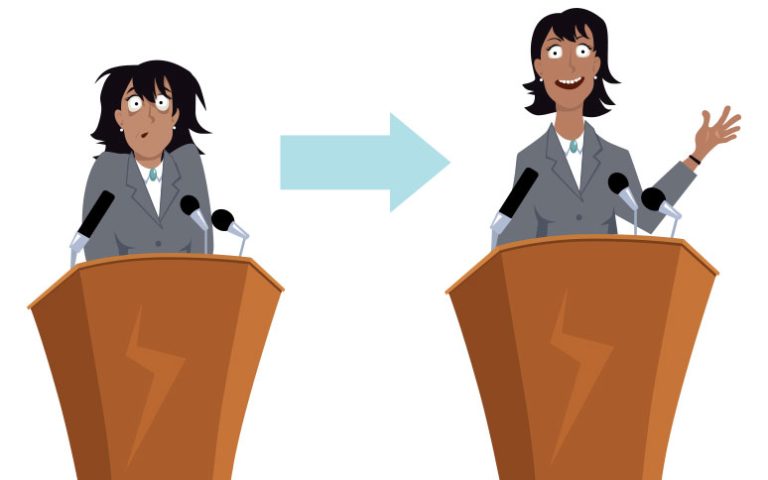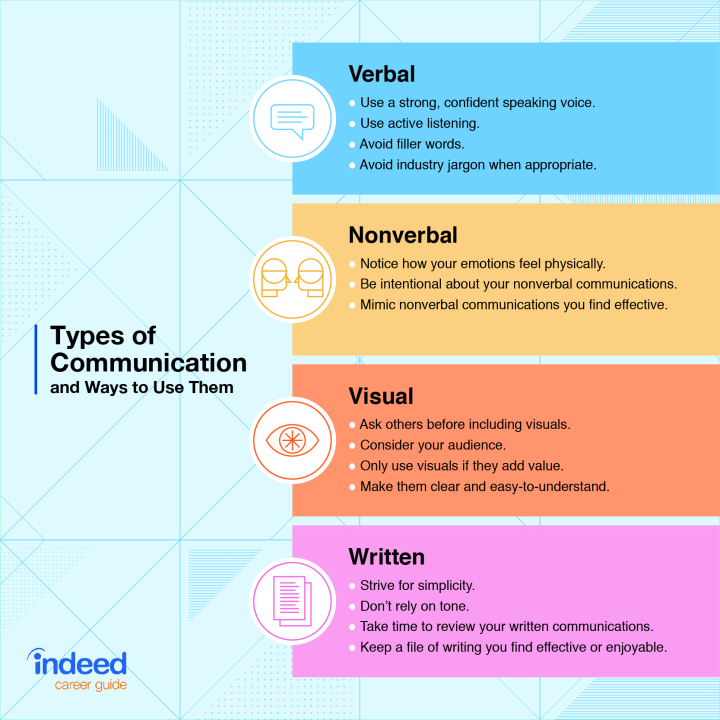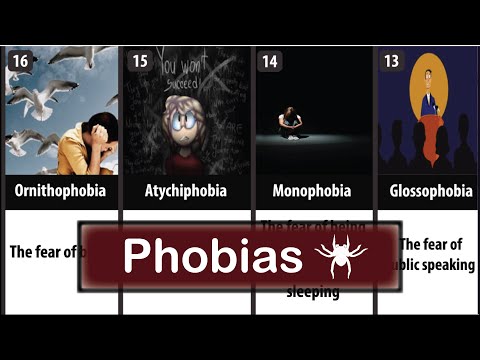Why are So Many People Afraid of Public Speaking?
Public speaking evokes fear in many individuals due to the fear of judgment and the pressure to perform well in front of an audience. This fear stems from the vulnerability of being in the spotlight and the potential for embarrassment or rejection.
The Fear Of Public Speaking
Public speaking is a common fear that affects people from all walks of life. This fear, known as glossophobia, can be paralyzing and hinder individuals from reaching their full potential in personal and professional settings. In this section, we will explore the prevalence of glossophobia and the psychological and emotional factors that contribute to the fear of public speaking.
The Prevalence Of Glossophobia
Glossophobia is an extremely prevalent fear, affecting a significant portion of the population. In fact, studies suggest that as many as 75% of individuals experience some degree of anxiety when speaking in front of others. This overwhelming statistic demonstrates the widespread nature of glossophobia and sheds light on the need to address and understand this fear.
Psychological And Emotional Factors
Many psychological and emotional factors contribute to the fear of public speaking. One prominent factor is the fear of judgment and rejection. When speaking in public, individuals often worry about being scrutinized or criticized by their audience. This fear of negative evaluation can lead to feelings of self-doubt and anxiety.
Additionally, the fear of embarrassment and making mistakes plays a significant role in glossophobia. The thought of faltering, stumbling over words, or forgetting important points creates a tremendous amount of pressure and anxiety. The fear of “messing up” can be paralyzing and prevent individuals from embracing public speaking opportunities.
Another underlying factor is the fear of being the center of attention. Many individuals feel uncomfortable being in the spotlight and having all eyes on them. This fear stems from a lack of confidence and a fear of not meeting others’ expectations.
Fear of public speaking may also be linked to past negative experiences. Whether it was a humiliating episode during a school presentation or a moment of embarrassment during a professional meeting, such experiences can leave a lasting impact on an individual’s confidence and contribute to the fear of speaking in public.
In conclusion, the fear of public speaking, known as glossophobia, affects a large percentage of the population. Understanding the prevalence of this fear and the psychological and emotional factors that contribute to it is crucial in addressing and overcoming it. By recognizing and addressing these factors, individuals can work towards conquering their fear and unlocking their full potential as confident and effective public speakers.
Evolutionary Origins
Public speaking triggers fear in many individuals due to evolutionary origins. Years ago, humans relied on group acceptance for survival, and being judged negatively by peers could threaten our status and safety. This fear remains ingrained in us today, causing anxiety and apprehension when speaking in front of others.
The Fight-or-flight Response
The fight-or-flight response is a primal instinct present in all living creatures, including humans. When faced with a perceived threat, our bodies prepare for action. This response triggers a cascade of physiological changes that equip us for survival. Our heart rate increases, blood pressure rises, and adrenaline floods our system, boosting our strength and speed. We become hyper-aware of our surroundings, ready to either confront the danger or flee. This instinctual reaction has been crucial for our ancestors’ survival, helping them avoid or confront potential predators and dangers in the wild.Survival Instincts
Our fear of public speaking can be traced back to our survival instincts. Speaking in public goes against our inherent desire to stay safe and avoid threatening situations. Public speaking situations can trigger the fight-or-flight response, even though the perceived threat is not physical. Our brains interpret the possibility of judgment, rejection, or failure as risks to our well-being, activating the same primal response as if we were facing a physical threat. As our ancestors lived in tightly-knit communities, being accepted and valued by others was crucial for survival. Being ostracized from the group could leave an individual vulnerable and alone, with limited resources and support. This fear of social exclusion has been deeply ingrained in our evolutionary history, making us hyper-aware of how we are perceived by others. The fear of public speaking taps into this deep-seated need for acceptance and belonging, fueling anxiety and apprehension. Moreover, the fear of public speaking is also connected to our innate fear of being judged. Throughout history, humans have relied on social hierarchies and societal structures for safety and stability. Being judged by others could result in a loss of status, influence, or resources. Whether it was the disapproval of the tribal leader or the scorn of the community, negative judgment could have severe consequences. This fear of judgment is a survival instinct, ingrained in our DNA, ensuring that we conform to societal norms and avoid behaviors that may jeopardize our social standing. In the modern world, where public speaking is often linked to professional success and personal growth, the fear of judgment and rejection can feel magnified. The stakes seem higher, and the pressure to perform is intense. Our brains interpret these situations as potential threats to our status and well-being, triggering the fight-or-flight response. Understanding the evolutionary origins of our fear of public speaking can help us navigate and overcome this common anxiety, allowing us to tap into our full potential as effective communicators.Social Anxiety
Social anxiety plays a significant role in why so many people are afraid of public speaking. Social anxiety, also known as social phobia, is an intense fear of being judged, criticized, or embarrassed in social or performance situations. It is a common form of anxiety disorder that affects a large number of individuals.
Fear Of Rejection And Judgment
One of the main reasons why social anxiety contributes to public speaking fears is the fear of rejection and judgment. Many individuals with social anxiety have a deeply ingrained fear of being rejected or criticized by others. This fear can be particularly heightened in public speaking situations, where the individual is in front of a large audience and feels exposed.
The fear of rejection and judgment can manifest in various ways during public speaking. Individuals with social anxiety may worry excessively about what others will think of them, fearing that they will be seen as incompetent, boring, or foolish. This fear can lead to a constant self-critical mindset, making it difficult for them to feel confident and comfortable in front of others.
In addition, the fear of rejection and judgment may cause individuals to avoid public speaking opportunities altogether. They may turn down opportunities to present at conferences, lead meetings, or participate in group discussions, fearful of the potential negative evaluation that they may receive from others. This avoidance behavior only reinforces and intensifies their fear of public speaking, making it increasingly difficult for them to overcome their anxiety in the future.
Self-consciousness
Another aspect of social anxiety that contributes to the fear of public speaking is self-consciousness. Individuals with social anxiety tend to be overly self-conscious and hyper-aware of their own perceived flaws and shortcomings. When speaking in public, this heightened self-consciousness can amplify their anxiety and self-doubt.
Self-consciousness during public speaking can make individuals excessively focus on their own performance, rather than connecting with the audience. They may become preoccupied with thoughts about how they appear, how their voice sounds, or whether they are making mistakes. This self-focused attention can be distracting and hinder their ability to effectively communicate their message.
Additionally, self-consciousness can lead to a negative cycle of overthinking and rumination. Individuals with social anxiety may dwell on past public speaking experiences where they felt embarrassed or judged, replaying these negative events in their mind. This constant self-monitoring and self-criticism can make future public speaking events even more anxiety-inducing.
In conclusion, social anxiety, characterized by fear of rejection and judgment, as well as self-consciousness, plays a significant role in why so many people are afraid of public speaking. Understanding and addressing these underlying factors can be crucial in helping individuals overcome their fears and develop confidence in public speaking.
Negative Experiences And Trauma
Public speaking can be a daunting experience, and there are various reasons why many people are afraid of it. One significant factor that contributes to this fear is negative experiences and trauma associated with public speaking. The fear of speaking in front of others can stem from past embarrassing or humiliating incidents, as well as the fear of failure. Let’s explore these factors in more detail.
Embarrassment And Humiliation
One of the main reasons people fear public speaking is the fear of embarrassment and humiliation. Unpleasant experiences can leave a lasting impact, creating a fear of being judged or criticized by others. Remembering the feeling of stumbling over words, or facing a disapproving audience, can cause anxiety when faced with speaking in public again. The fear of making mistakes, being laughed at, or not meeting expectations can all contribute to this distinct fear.
Past Failures
Past failures in public speaking can significantly affect an individual’s confidence and foster fear. These failures may include moments when someone forgot their lines, got lost in their presentation, or received negative feedback. These experiences can lead to a lack of self-esteem, self-doubt, and the belief that one is not capable of delivering a successful speech. This fear of repeating past failures can prevent individuals from willingly putting themselves in a potentially similar situation, leading them to actively avoid public speaking opportunities.
Perceived Lack Of Skills And Knowledge
Public speaking can be daunting due to a perceived lack of skills and knowledge, leading many to fear it. Building confidence and honing communication abilities are essential to overcoming this fear.
Imposter Syndrome
One reason why many individuals are afraid of public speaking is due to the phenomenon known as imposter syndrome. This is the perception that they are not skilled or knowledgeable enough to be speaking in front of an audience. It’s a constant fear that they will be exposed as a fraud, that their lack of skills and knowledge will be revealed. People suffering from imposter syndrome often believe they are not qualified or deserving of their success, which leads to anxiety and a fear of public speaking.
Fear Of Being Exposed
Another common reason for the fear of public speaking is the fear of being exposed. This fear stems from the belief that others will discover the speaker’s lack of skills or knowledge during their presentation. The thought of standing in front of an audience and having their weaknesses or mistakes exposed can be incredibly daunting. This fear of humiliation and judgment can cause anxiety, leading to a reluctance to speak publicly.
It’s important to note that the perceived lack of skills and knowledge is often just that – perceived. Many individuals who suffer from the fear of public speaking are actually more skilled and knowledgeable than they give themselves credit for. They underestimate their abilities and are overly critical of themselves. Understanding and addressing these beliefs can help individuals overcome their fear of public speaking.
Frequently Asked Questions Of Why Are So Many People Afraid Of Public Speaking?
Why Do People Feel Anxious About Public Speaking?
The fear of public speaking often stems from the fear of being judged or embarrassing oneself in front of others.
Can Public Speaking Make You A Better Communicator?
Public speaking can greatly enhance communication skills, as it teaches you how to articulate your thoughts and ideas effectively to an audience.
How Can You Overcome The Fear Of Public Speaking?
By practicing regularly, visualizing success, and focusing on the message rather than on yourself, you can gradually conquer the fear of public speaking.
Conclusion
To sum up, public speaking anxiety is a common phenomenon that affects a significant portion of the population. The fear of being judged, making mistakes, and facing embarrassment can be daunting. However, understanding the root causes and implementing effective strategies can help individuals overcome this fear and become confident speakers.
By addressing self-doubt, practicing regularly, and seeking support, anyone can conquer their fear and excel in public speaking. So, embrace the challenge, believe in your abilities, and watch yourself grow as a powerful communicator.



